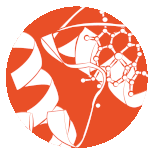
Around town: 2016 Salish Sea Ecosystem Conference
The Salish Sea—where?
Don’t worry if you’re scratching your head, wondering where in the world it is; the Salish Sea came into named being just under six years ago. In July 2010, the three bodies of North American West Coast water—Puget Sound, the Juan de Fuca Strait and the Strait of Georgia—all came under the common regional name of the Salish Sea. Straddling the Canada–United States border, the new sea covers all the water from Desolation Sound in the north to Oakland Bay at the south end of Puget Sound.
It’s a busy area, with ship traffic heading to major ports in Vancouver and Seattle. This is in addition to the whale watchers eager for photographic trophies, and a criss-crossing of ferry routes leading from the mainland out to the many islands nestling in the sound, protected from Pacific exposure by the Olympic Peninsula and Vancouver Island. The Salish Sea is busy for wildlife too; marine mammals such as humpback whales, fin whales and two populations of resident killer whales, numerous salmon runs heading to and from freshwater destiny, sea stars, octopuses, and migratory birds all call the region home.
 The Salish Sea Ecosystem Conference evolved from local research activity in Puget Sound and the Georgia Basin, adopting the current title to amalgamate the broader geographical reach of interest two years ago. As mentioned, the Salish Sea is home to many different species, including humans. This year’s conference program includes a depressing number of topics relating to our impact on the area, from pollution (garbage, plastics, toxins and noise) to abandoned fishing gear and traffic levels, all of which impact normal daily life beneath and beyond the waves. Toxins affect fish stocks, killer whale breeding and plant life; noise pollution from boat traffic impacts whale navigation; garbage and abandoned fishing gear is a killer; even tourism and whale watching can have a detrimental effect.
The Salish Sea Ecosystem Conference evolved from local research activity in Puget Sound and the Georgia Basin, adopting the current title to amalgamate the broader geographical reach of interest two years ago. As mentioned, the Salish Sea is home to many different species, including humans. This year’s conference program includes a depressing number of topics relating to our impact on the area, from pollution (garbage, plastics, toxins and noise) to abandoned fishing gear and traffic levels, all of which impact normal daily life beneath and beyond the waves. Toxins affect fish stocks, killer whale breeding and plant life; noise pollution from boat traffic impacts whale navigation; garbage and abandoned fishing gear is a killer; even tourism and whale watching can have a detrimental effect.
 If Canada’s second astronaut in space, Dr. Roberta Bondar, thinks it is important enough to give the conference keynote lecture, then I’m sure the rest of us should also pay attention. Maybe as users of the Salish Sea, we have an obligation to take a timely warning for what a mess we can make of an ecosystem. More importantly, we could learn to make things better.
If Canada’s second astronaut in space, Dr. Roberta Bondar, thinks it is important enough to give the conference keynote lecture, then I’m sure the rest of us should also pay attention. Maybe as users of the Salish Sea, we have an obligation to take a timely warning for what a mess we can make of an ecosystem. More importantly, we could learn to make things better.
2016 Salish Sea Ecosystem Conference
April 13–15, 2016

No Comments